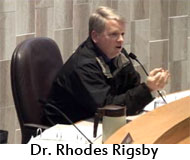12/8/2010
Two More California Cities Reject Red Light CamerasTwo additional California cities dump their photo enforcement programs.

Red light cameras are nowhere near as popular as they once were with Golden State municipalities. Loma Linda and Whittier became the most recent examples of California cities unplugging their automated ticketing machines after noting that the devices both failed to reduce accidents and generate the promised amounts of revenue.
In 2005, Loma Linda allowed Redflex Traffic Systems to mail tickets, now nearly $500 each, to motorists who primarily made slow, rolling right-hand turns on red. In the second year of the program, the city lengthened the duration of the yellow light at the enforced intersection. As a result, straight-through violations -- and profit -- plunged. This convinced council members that the program was not worth keeping, but Redflex prevented the city from canceling the contract by threatening to the city to pay for three years' worth of "losses" accumulated since the signal timing change. The Australian company then took steps to conceal the long-term effect of longer yellow on straight-through citations.
"Redflex held the deficit over our heads since the contract stated that they would forgive the deficit only at the end of the term," Mayor Rhodes Rigsby told TheNewspaper. "Redflex apparently stopped separating the statistics for straights, lefts and rights to prevent me from further reporting of their perfidious business model."
Extended yellow timing does not change the number of tickets for the right-hand turns that made up 95 percent of tickets by program's end. The Loma Linda council's most vocal camera critic hopes the city's experience will encourage other cities to drop their photo enforcement programs.
"These cameras need to be taken down everywhere," Councilman Ovi Popescu told TheNewspaper. "They are used to enrich governments and pay for out of control spending on pensions and salaries here in California. I feel sorry for the residents of many other communities such as Los Angeles and San Bernardino who will suffer at the hands of a government that is only getting bigger and more determined to take your money all under the guise of improving safety."
Residents in Whittier will no longer see cameras flashing after officials admitted the cameras neither reduced accidents nor generated revenue. The city last month allowed its contract to expire, forcing American Traffic Solutions to remove its equipment.
Throughout the state, the same complaints have been heard throughout the year. In January, Moreno Valley dropped cameras. San Carlos canceled in April. Union City dumped cameras in June. Yucaipa and Costa Mesa ended automated ticketing in July. In November, 73 percent of Anaheim residents voted to ban cameras, although they had not been installed.
In the past, Cupertino, Compton, El Monte, Fairfield, Fresno, Fullerton, Indian Wells, Irvine, Maywood, Montclair, Paramount, Rancho Cucamonga, Redlands, Roseville, San Jose (photo radar), Santa Fe Springs, Santa Maria, Santa Rosa, and Upland have rejected their automated ticketing programs.


